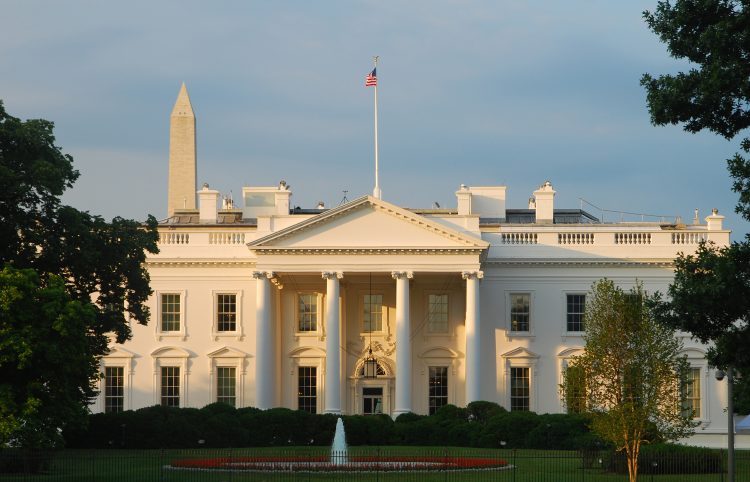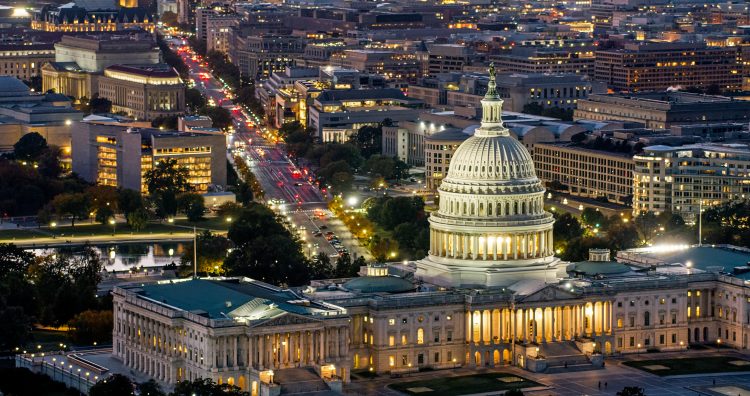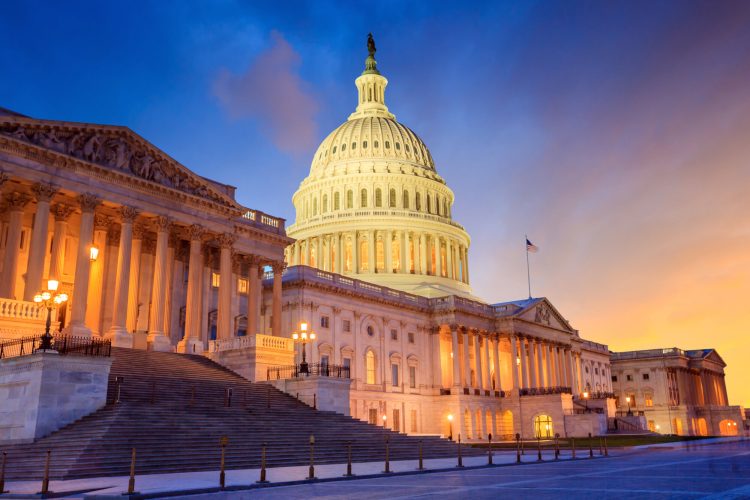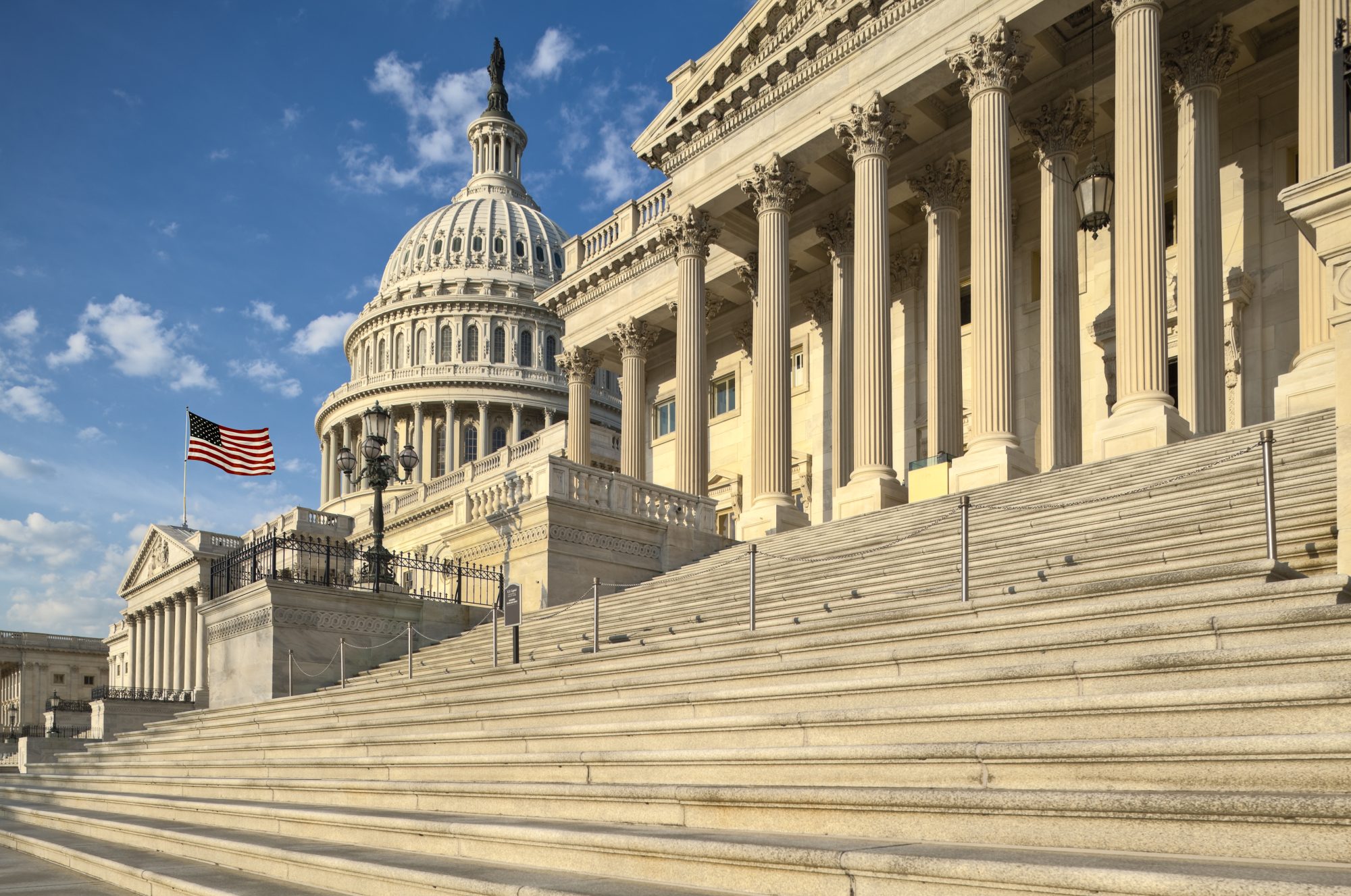This week on Facing the Future we focused on the One Big Beautiful Bill Act (OBBBA) that passed the House by one vote and is headed to the Senate. Our guest was Douglas Holtz-Eakin, President of the American Action Forum and former Director of the Congressional Budget Office (CBO). Aside from the OBBBA, we talked to Doug about tariffs, the economy and budget scoring. Concord Coalition Executive Director Carolyn Bourdeaux joined the conversation.
Holtz-Eakin said there were some good things about the OBBBA, but overall he finds the bill underwhelming. “It’s great virtue,” he said, “is that it exists and we’re not going to let the 2017 [tax cuts] sunset. That would be a $425 billion tax increase in 2026 and would knock the economy sideways, if not into a mild recession.”
However, he described the remainder of the bill as “a set of political favors being handed out.” Unlike many proponents of the bill, Holtz-Eakin does not see it as a big plus for the economy. “This bill has essentially no impact on the trend rate of growth, which is something like 1.8% to 1.9% percent,” he said. “They’re talking about moving the growth rate to 3%. That’s numerically implausible. So they’re overselling the growth impacts. It may, in fact, be negative because we’re going to have worse fiscal outcomes.”
In Holtz-Eakin’s view, “The gold standard for the big, beautiful bill should have been, a deficit neutral pro-growth tax reform that would have had some improvement in growth had some improvement in the fiscal outlook. The lower bound should have been to do no harm. This makes the fiscal situation worse, and is not great tax policy. The Senate has a chance to get serious. I’d like to see that.”
Holtz-Eakin said it was not surprising that some Republicans believe that CBO is giving the OBBBA too little credit for its potential to grow the economy. Such talk, he said, “might be louder in volume now than in the past, but it’s not new. When I did the first dynamic scoring back in 2003, there was a big tax cut, which Republicans thought should juice the economy. But there was also a big bulk of spending called the Medicare Part D program. The net impact of that entire set of budgetary proposals was relatively modest and a little bit above zero. I thought the lesson the Congress would learn is, if you really want to have pro-growth tax cuts, you can’t laden them down with big spending programs. What they concluded was, I did it wrong. Blaming the messenger is a time-honored technique so it is worth emphasizing that CBO is genuinely nonpartisan in its work. It’s not nonpartisan because it’s in the law. It’s nonpartisan because it’s in their DNA. That’s how they’ve always done the work. It’s the only way they know how to do the work.”
Looking ahead, Holtz-Eakin is concerned that financial market signals show increasing stress from the nation’s rising debt. “For a long time,” he said “the question I got more than anything else was, ‘Okay, you say we’re on an unsustainable trajectory. How long can this go on?’ And the honest answer is always, ‘I don’t know, and I don’t want to find out.’ I’ve always thought we shouldn’t run the experiment. We should just fix the problem and move on. But I now feel we are getting close to something that would be very unpleasant.”
Two signals in particular stand out to him. The first is the rationale for Moody’s recent decision to downgrade U.S. debt. “When S&P downgraded the United States in 2011 they said it was because politics in the U.S were terrible,” he said. “And then, when Fitch did it in 2023, they said the United States was unable to manage its finances effectively. Both of those downgrades were about the process of managing the debt. Moody’s didn’t say anything about the process. It said, ‘you have too much debt and way too much interest.’ It’s no longer about the process but about the problem.That’s a different character to the downgrade, and one that I find troubling.”
The second signal that has him concerned is that “in the aftermath of the big tariff increases there was a simultaneous very fast rise in long-term rates – 50 basis points – and an exiting of the U.S. economy. The dollar depreciated dramatically. That’s the first time money has fled the United States for safety. That’s unprecedented and makes me very uncomfortable. So in those circumstances, I think markets are more sensitive to debt, and the negative impacts of crowding out are going to be more pronounced now than they would have been even a year ago.”
Hear more on Facing the Future. Concord Coalition Senior Advisor Bob Bixby hosts the program each week on WKXL in Concord N.H., and it is also available via podcast. Join us as The Concord Coalition team discusses issues relating to national fiscal policy with budget experts, industry leaders, and elected officials. Past broadcasts are available here. You can subscribe to the podcast on Spotify, Pandora, iTunes, Google Podcasts, Stitcher, or with an RSS feed. Follow Facing the Future on Facebook, and watch videos from past episodes on The Concord Coalition YouTube channel.
Continue Reading












